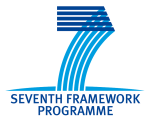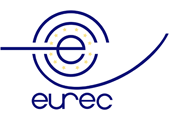menu
- Home
- National Information
- EC-Activities
- EUREC-Activities
- Legislation
- Training Materials
- Literature
- Events
- Newsletter
supported by:

Eurecnet - Training material details
Training material details
Moral reasoning in scientific research. Cases for teaching and assessment
Author(s): Bebeau; Muriel J. et al.
Document type: Book, Online material
Year: 1995
Pages: 86
Source: Faculty, university or academic institution: Indiana University, Poynter Center for the Study of Ethics and America Institutions
URL: http://poynter.indiana.edu/mr/mr.pdf
Language(s): English
Classification
National background: United StatesCategory: Non-EU Training Material for Research Ethics
Subject areas: Ethical research (fraud and misconduct)
Content: Case studies
Issues touched: Social background of research; conflicts of interest, researcher vs. doctor, commercialisation; Fabrication, falsification, plagiarism; Ethics committee, research protocols; Research on animlas; Others: typical conflicts of interest between different researchers
Audience: Students of natural sciences
Classification remarks: The book contains 12 pages of introductory remarks on teaching research ethics (for teachers), 7 pages of explaining the steps of an ethical assessment of a situation (to students). It provides 6 case studies, each with "notes for discussion and assessment" (explaining "issues or points of conflict", "interested parties", "consequences" and "obligations" of the situations described) and an evalutation checklist for evaluating student assessments.
Estimation
Theoretical quality remarks: The 6 case studies presented all deal with more or less realistic situations that research students may meet in the course of theit training. They all focus on academic misconduct. The case studies are accompanied by extensive "notes for discussion and assessment" (explaining "issues or points of conflicts","interested parties","consequences" and "obligations" of the situations described). In the supposed courses the cases can be first presented, students could be asked to write down their assessments, then discuss and revise them. Teachers are then intended to evaluate their first and their revised assessments. An evaluation checklist for evaluating students' assessment is provided for each presented case.Didactical quality: Didactically prepared material
Overall estimation: excellent
Estimation remarks: The focus is just on a small area of research ethics and there are no theoretical considerations provided. Still this material is thoroughly prepared and may well be used as an excellent example for well-structured coursework.
